Slavoj Zizek: The Reality of the Virtual is a film of genre Documentary directed by Ben Wright
Slavoj Zizek: The Reality of the Virtual (2004)
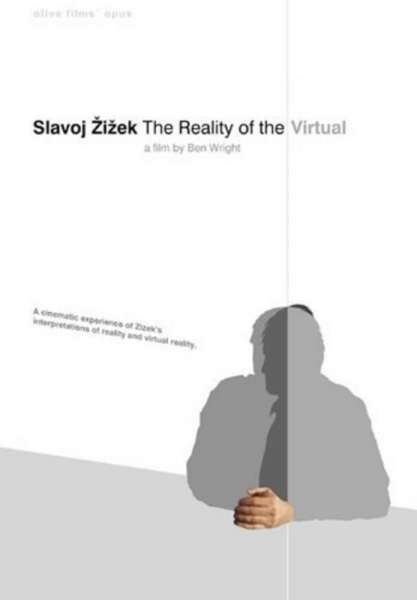
If you like this film, let us know!
- Infos
- Casting
- Technical infos
- Photos
- Videos
- Film quotes
- Characters
- Music
- Awards
Length 1h14
Directed by Ben Wright
Genres Documentary
Themes Films about writers, Medical-themed films, Documentaire sur une personnalité, Documentary films about health care, Films about psychiatry
Rating73%










The Reality of the Virtual is a 2004 documentary film lecture by Slovenian philosopher Slavoj Žižek. Recorded in a single day by Ben Wright, the film consists of 7 long takes of Žižek seated in front of a bookshelf. The discourse concerns the concept of "real effects produced, generated, by something which does not yet fully exist, which is not yet fully actual", with numerous examples from psychoanalysis, politics, sociology, physics and popular culture.
Comments
Leave comment :
Suggestions of similar film to Slavoj Zizek: The Reality of the Virtual
There are 0 films with the same director, 8969 with the same cinematographic genres, 6377 films with the same themes (including 3 films with the same 5 themes than Slavoj Zizek: The Reality of the Virtual), to have finally 70 suggestions of similar films.If you liked Slavoj Zizek: The Reality of the Virtual, you will probably like those similar films :

First Cousin Once Removed (2012)
, 1h18Directed by Alan Berliner
Origin USA
Genres Documentary
Themes Films about writers, Medical-themed films, Documentaire sur une personnalité, Documentary films about health care, Films about psychiatry, Films about disabilities
Rating74%






Genres Documentary
Themes Films about writers, Medical-themed films, Documentaire sur une personnalité, Documentary films about health care, Films about psychiatry
Rating72%





 , 27minutes
, 27minutesOrigin USA
Genres Documentary
Themes Films about writers, Films about journalists, Medical-themed films, Films about suicide, Documentary films about the visual arts, Documentaire sur une personnalité, Documentary films about health care, Films about psychiatry, Films about disabilities
Rating71%





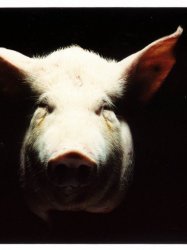
First Kill (2001)
Genres Documentary, Historical
Themes Medical-themed films, Documentary films about war, Documentary films about historical events, Documentaire sur une personnalité, Documentary films about health care, Films about psychiatry, Films about disabilities, Political films
Rating76%






The Horse Boy (2009)
, 1h33Origin USA
Genres Documentary
Themes Films about children, Environmental films, Medical-themed films, Documentaire sur une personnalité, Documentary films about health care, Films about psychiatry, Films about disabilities, Films about autism
Rating71%





 , 1h38
, 1h38Origin Canada
Genres Documentary
Themes Medical-themed films, Documentary films about law, Documentaire sur une personnalité, Documentary films about health care, Films about psychiatry, Films about disabilities, Films set in psychiatric hospitals
Rating71%





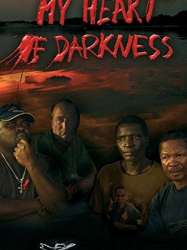
My Heart of Darkness (2010)
, 1h33Genres War, Documentary
Themes Films set in Africa, Medical-themed films, Documentary films about war, Documentary films about historical events, Documentaire sur une personnalité, Documentary films about health care, Films about psychiatry, Films about disabilities, Political films
Rating63%





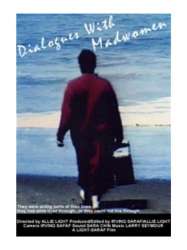
Dialogues with Madwomen (1994)
, 1h30Origin USA
Genres Documentary
Themes Medical-themed films, Documentaire sur une personnalité, Documentary films about health care, Films about psychiatry, Films about disabilities
Rating77%





In Dialogues with Madwomen, filmmakers Allie Light and Irving Saraf have seven "madwomen" — including Light herself — into telling their stories. Using a mixture of home movies, archival footage of psychiatric wards, re-enactments, and interviews with their subjects, Light and Saraf have created a complex, moving portrait of women in whom depression, schizophrenia, and multiple personalities coexist with powerful, sometimes inspired levels of creativity.
 , 54minutes
, 54minutesOrigin USA
Genres Documentary
Themes Medical-themed films, Documentaire sur une personnalité, Documentary films about health care, Films about psychiatry, Films about disabilities
Actors Olivia de Havilland
Rating67%





The film is by Eric Ellena and Berna Huebner, and is narrated by actress Olivia de Havilland. It features an interview with Yasmin Aga Khan, president of Alzheimer Disease International and daughter of Rita Hayworth, who had Alzheimer's, describing how her mother took up painting while struggling with the disease. The inspiration for the film is the story of Hilda Goldblatt Gorenstein (Hilgos), who had Alzheimer's. As she painted, Hilgos’s mobility and speech began to improve as did her quality of life.
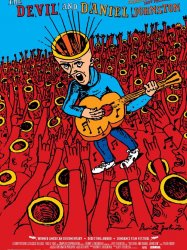 , 1h50
, 1h50Directed by Jeff Feuerzeig
Origin USA
Genres Documentary, Musical
Themes Medical-themed films, Films about music and musicians, Documentary films about music and musicians, Documentaire sur une personnalité, Documentary films about health care, Musical films, Films about psychiatry, Films about disabilities
Actors Matt Groening
Rating78%





Portrait de l'Américain Daniel Johnston, artiste maudit, songwriter culte et illustrateur, qui souffre de maniaco-depression.
 Connection
Connection